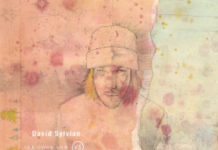By Mitch Rice
Music has always played a crucial role in the world of cinema. From the earliest days of silent films, music has been used to enhance the emotional impact of a scene, to create tension, and to help tell the story. In this article, we will explore the role of music in film and analyze some of the most iconic soundtracks in cinema history. But before we dive into that, let’s gamble only with nz$5 casinos.
The Importance of Music in Film
Music is an essential component of any film. It can help to set the mood, create atmosphere, and convey emotions that might not be possible through dialogue or visuals alone. A well-crafted soundtrack can elevate a film from good to great, and can even become iconic in its own right.
One of the most important functions of music in film is to help tell the story. Through the use of leitmotifs – recurring musical themes associated with particular characters or situations – composers can help to reinforce the narrative and guide the audience’s emotional response. For example, think of the ominous two-note motif that accompanies the shark in Jaws, or the triumphant fanfare that heralds the arrival of Indiana Jones.
Music can also be used to create tension and suspense. By using dissonant chords, irregular rhythms, and other techniques, composers can make the audience feel uneasy and on edge. This is particularly effective in horror and thriller films, where music is often used to build tension before a jump scare or other shocking moment.
Iconic Soundtracks
There have been many iconic soundtracks throughout the history of cinema. Some have become so closely associated with their films that it is impossible to imagine one without the other. Here are just a few examples:
- Star Wars: John Williams’ score for Star Wars is one of the most recognizable and beloved soundtracks of all time. From the triumphant main theme to the foreboding Imperial March, Williams’ music perfectly captures the epic scope and grandeur of George Lucas’ space opera.
- The Godfather: Nino Rota’s haunting score for The Godfather perfectly captures the melancholy and tragedy at the heart of Francis Ford Coppola’s mafia epic. The main theme, with its mournful trumpet melody and lush strings, is instantly recognizable and has become synonymous with the film.
- Rocky: Bill Conti’s rousing score for Rocky is an essential part of the film’s success. The main theme, “Gonna Fly Now,” with its triumphant brass and driving rhythm, perfectly captures the determination and spirit of Sylvester Stallone’s underdog boxer.
These are just a few examples of iconic soundtracks in cinema history. There are countless others, from Bernard Herrmann’s chilling score for Psycho to Ennio Morricone’s unforgettable music for The Good, The Bad and The Ugly.
Conclusion
In conclusion, music plays a vital role in film. It can help to tell the story, create atmosphere, and convey emotions in ways that might not be possible through dialogue or visuals alone. A well-crafted soundtrack can elevate a film from good to great, and some soundtracks have even become iconic in their own right. Whether it’s John Williams’ epic score for Star Wars or Nino Rota’s haunting music for The Godfather, there is no denying the power and importance of music in cinema.
Data and information are provided for informational purposes only, and are not intended for investment or other purposes.






